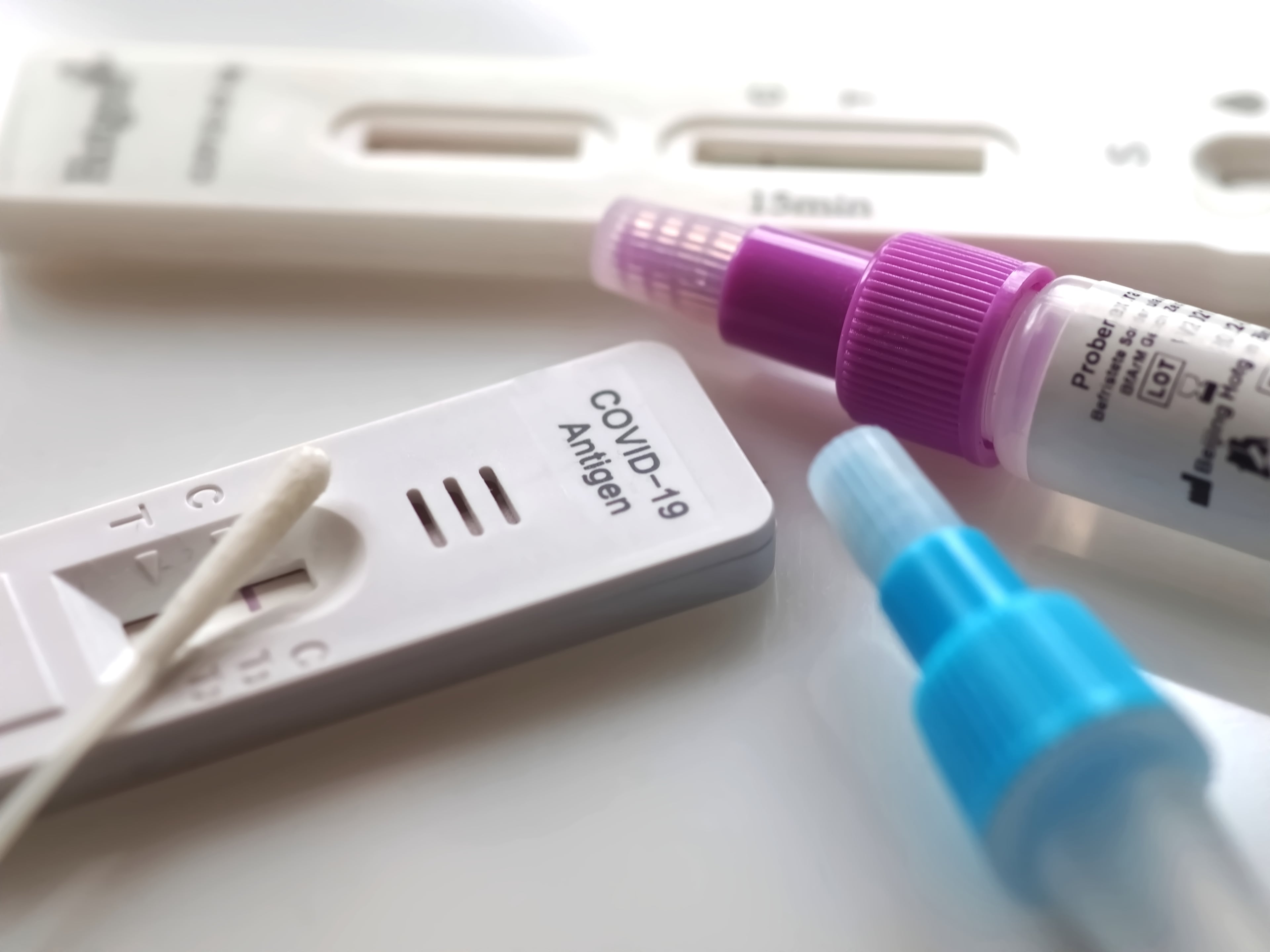The latest flu numbers in Georgia prove it: More and more of us are sick
The ongoing flu season is shaping up to be one of the worst in years in Georgia. Throw in the coronavirus and other viruses into the mix, and you’ve got a collision of viral illnesses.
“It definitely feels like a lot of people,” said Dr. Marybeth Sexton, an epidemiologist at Emory Clinic who said she’s seeing many patients and acquaintances with viral illnesses. “A lot of people did come back from vacation with an upper respiratory illness and it’s a mix — a lot of flu, a moderate amount of COVID, and then a smattering of other things.”
Flu activity in Georgia has reached “very high” levels in recent weeks, according to the Centers for Disease Control and Prevention. Georgia is now one of nine states with the highest levels of flu-like illnesses.
The latest Georgia flu report for the week ending Dec. 30 shows the percentage of people going to the doctor for flu-like symptoms has climbed up to 11.1% of all doctor visits, up from 10.3% the previous week.
The data from doctor visits is based on the number of people going to the doctor with symptoms such as fever, cough or sore throat. It can include people who are suffering from any of the circulating viruses: flu, coronavirus or Respiratory Syncytial Virus (RSV). Also circulating are the common cold and the bacterial infection known as strep throat, according to local doctors.
According to the state Department of Public Health, 274 people were hospitalized with the flu in the week ended Dec. 30 in the eight-county metro Atlanta region that includes Fulton, DeKalb, Clayton, Cobb, Douglas, Gwinnett, Rockdale, and Newton counties.
The peak of the 2022-23 flu season came sooner, in early November, and then steadily dropped. This season, the peak is coming later and appears to still be building.
“It’s always concerning when you see a rise. This one is not necessarily unexpected given everybody’s risk level with travel and the time of year — but I do think it’s a signal to be cautious, especially if you’re at high risk,” said Sexton. “It’s a signal to get vaccinated if you haven’t already. And it’s definitely something to keep an eye on to make sure that we are going to peak and come back down in the near future and not continue to go up.”
With flu activity widespread and soaring in Georgia, doctors are bracing for even more spread as people return to school and work. Local doctors say they are also seeing a small number of people sick with flu and COVID at the same time.
Physicians agree the best way to avoid spreading and contracting viruses is to get vaccinated and stay home if you are sick. Doctors and the CDC recommend early treatment for anyone who gets sick, especially for those at high risk of serious complications. Antivirals are available for both COVID and the flu, but must be taken shortly after symptoms appear.
“I would stress during this time being very sensitive to gatherings and traveling and when someone in your network is ill or experiencing illness, be mindful of making accommodations to protect people,” said Dr. Danny Branstetter, medical director of infection prevention for Wellstar Health System.
Sexton says she is wearing a mask more in public.
“I would have gone in a grocery store a couple of months ago without a mask,” she said. “I would not right now.”
Doctors say very young children as well as older adults are especially vulnerable to getting seriously sick from viral illnesses. People with underlying medical conditions such as diabetes or lung disease are also at higher risk of complications.

Local doctors also say there is a sense of urgency to increase vaccinations. Vaccination rates, while low across the country, are especially low in Georgia. Among the state’s adults ages 18 and over, 21% have taken a flu vaccine and 7.3% have had the updated COVID vaccine.
Nationally, the CDC estimates that 42% of adults in the U.S. have received a flu shot, according to estimates on Dec. 9. And 18% of adults have received the updated COVID vaccine.
Doctors say it’s not entirely clear why the share of people getting a flu shot in Georgia is so low this year, but some doctors say polarized views and hesitancy to get a COVID shot have had spillover effects on flu vaccines.
“I have had a lot of discussions that the flu vaccine is not the COVID vaccine and there’s no COVID in the flu vaccine, but there’s a lot of people who are hesitant because of COVID vaccine issues,” said Dr. Andrew Reisman, a Gainesville doctor and former president of the Medical Association of Georgia.
Early reports indicate the flu vaccine this year is a good match for circulating strains. But doctors stress vaccines offer strong protection from serious illness and complications even when they are less-than-ideal matches for the viruses. CDC analysis of pediatric deaths has shown most children who die of the flu were not vaccinated against influenza. The CDC also points to a 2020 study that found among children, flu vaccination reduced the chance of flu-related hospitalizations by 41% and reduced the risk of emergency room visits by 51% during the 2018-2019 flu season. A 2017 study also found flu vaccine sharply reduced the risk of hospitalizations among adults, too.
Because widespread flu activity is driving the current spike in illnesses, Reisman said he believes the flu vaccine is the most important one at this time.
COVID numbers have also risen in recent weeks but they are not as high as previous years. Meanwhile, RSV is on the decline after an earlier rise in cases.
New COVID hospitalizations are up in Georgia, but they remain lower than previous holiday seasons. In Georgia, new COVID hospitalizations totaled 501 for the week ending Dec. 23. That’s up from 472 the previous week, a 6% increase. Nationally, new COVID hospitalizations increased by 17% over the same period.



